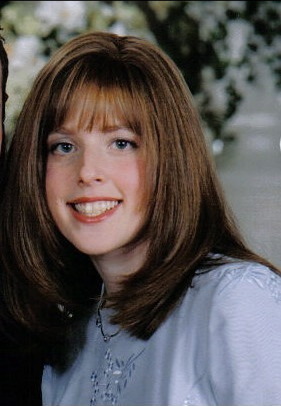Notes from a working mom: Multi-generational relationships
Getting along with your elders at work
By Ayala Cohen
Issue of Sept. 26, 2008
As part of its employee assistance program, my company sends out a monthly newsletter offering solutions to various issues that employees encounter. The most recent publication was entitled “Relationships at Work” and one article in particular caught my eye. The article was called “Getting along in an Age-Diverse Workplace,” and the subtitle read “Co-worker gripes often have a generational issue at their core. Learn ways to improve understanding and get along in an age-diverse workplace.”
I began thinking about my own relationships with people of diverse ages. With Rosh Hashanah approaching, it is time to begin a cheshbon hanefesh and start the process of teshuva, evaluating our actions from the past year, repenting and resolving to do better.
With regard to self-evaluation, I often think of working motherhood as a “get out of jail free” card; after all, when do I have time to sin? I’m too busy earning a living and caring for my family to get into too much trouble.
But taking everything into account, I recognize that what I need to work on the most is interpersonal relationships with family members. Relationships with other generations, I suspect, is where many people struggle.
Questions to evaluate our attitude toward others
An important part of getting along with people of different ages is avoiding stereotypes. Ask yourself these questions to evaluate your attitudes towards others.
1. What are the most important qualities a person should have?
2. What do you owe others?
3. What do they owe you in return?
4. What kind of thanks do you need to feel valued?
5. How do you feel about people who don’t share your feelings?
6. Look at each generation:
7. Are there characteristics that frustrate or anger you?
8. Do you feel comfortable with people of all ages, or only specific groups of people?
9. What do you appreciate about people of other generations?
10. What path did you take in life to get where you are?
11. How is the world different today than it was when you were a child and when you were a young adult?
I honestly don’t feel that differences in age cause much conflict for me in the workplace. For the most part, I have good relationships with my co-workers regardless of how old they are. On my train commute every morning, I socialize with a group of women that are multi-generational, and we all get along. Moreover, I find that I benefit from getting the perspective of women who are older and wiser than myself.
I’m pretty buttoned up when it comes to keeping my manners at work and on the train. It’s only when I’m home that I let my hair down (literally and figuratively) and then things can get “hairy.” That’s when I find it difficult to get along with people of various ages and generations, which left me wondering how I could improve my relationships with family members.
In the past, I have used concepts from parenting and relationship books to improve my workplace performance, so why not try the opposite — might the company-issued advice column help me to improve my relationship with my family, ultimately achieving a more peaceful and perfected existence in this world?
The advice from the company is to understand where each person is coming from, uncover biases and use open, non-judging communication. All seem quite simple to achieve, but it can be very difficult to break out of deeply ingrained patterns of behavior.
A first step toward achieving harmony with those that are younger or older than you is to learn about the characteristics that tend to describe them. Just as the workforce is comprised of four generations of workers — Traditionalists, Boomers, Gen Xers and Gen Y (Nexters), a.k.a. The Echo Boomers — so, too, is the family. Every generation has its own specific qualities. Baby Boomers tend to view the world as opportunity-rich, always see possibility, and “hang tough” through difficult situations, while Gen Xers tend to be more skeptical, prize independence, and see themselves as free agents.
The differing assumptions and attitudes of each generation can lead to miscommunication, frustration and even conflict. Keeping in mind the characteristics that define family members will help you to navigate your relationships better. Armed with this knowledge, you are more likely to understand a different viewpoint, allowing your respective differences to work for your collective advantage.
A second step is avoiding stereotypes. Although generational descriptions can be helpful in understanding the people in your life, realize that these descriptions are generalizations only. Try to evaluate your attitudes towards others. It can help you see if you hold a bias towards people of other generations.
People of varying ages also communicate differently. A third step toward making the most of multi-generational relationships is open, non-judging communication. Make sure your needs, expectations and intentions are clear and understood by those around you, and listen to others when they are expressing theirs.
You might not always agree, but at least you will not misunderstand each other.
Following these guidelines will help you in all your relationships, but perhaps not with your young children. Parenting is a whole different ballgame. While some of this advice may help for children over the age of 18, it is probably best to consult with a parenting expert if you are having difficulties in your relationships with your toddlers, primary-schoolers and teenagers. My only advice there is to never let a day go by without letting your children know that you love them.
Ayala Cohen is Media Research Manager at Johnson & Johnson, wife to magician Binyamin (Ben) Cohen and mother of three.






